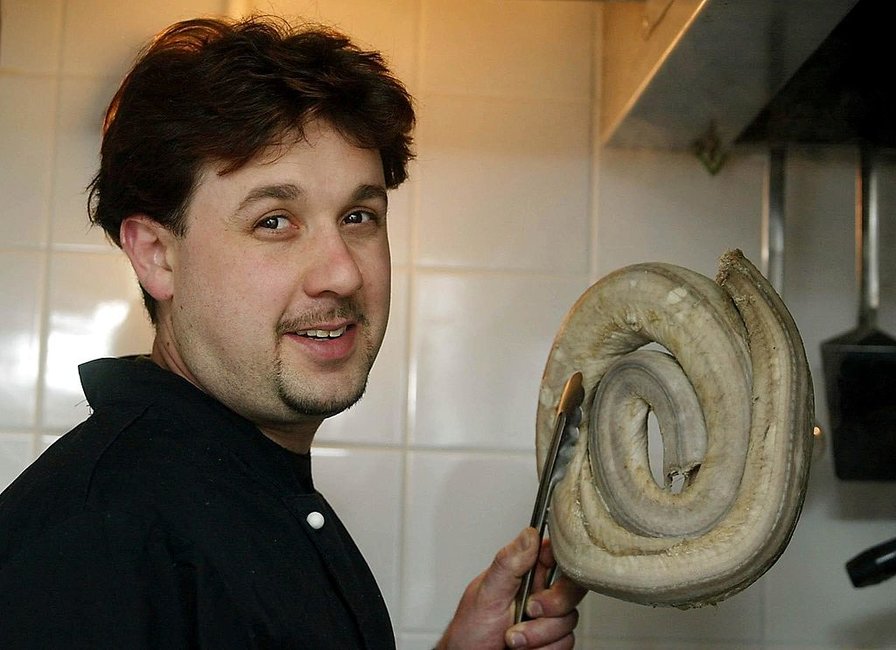
Tim Spector probably never expected to measure his poop, but so life goes. The professor of Genetic Epidemiology at King’s College London was invited by his colleague, visiting research fellow Jeff Leach, to travel to one of the last remaining hunter-gatherer tribes in Africa.
The purpose: to track his gut microbiome.In a time of fractured nutritional advice with snake oil salesmen and saleswomen proffering wildly speculative claims, your bacteria and fungi don’t lie. Your microbiome is the community of microorganisms that live inside of your stomach. Research is showing that this is one of the most important markers of your health, physically and psychologically. So Spector measured his levels, hopped on a plane to Tanzania, and ate porcupine.

Depression, Serotonin, and the Mind-Gut Connection Emeran Mayer
Play Video
Play
Mute
Current Time 0:00
/
Duration Time 0:00
Loaded: 0%
Progress: 0%
Stream TypeLIVE
Remaining Time -0:00
Playback Rate
1
- Chapters
Chapters
- descriptions off, selected
Descriptions
- subtitles off, selected
Subtitles
- captions settings, opens captions settings dialog
- captions off, selected
Captions
Audio Track
Fullscreen
This is a modal window.
Caption Settings Dialog
Beginning of dialog window. Escape will cancel and close the window.
TextColorWhiteBlackRedGreenBlueYellowMagentaCyanTransparencyOpaqueSemi-TransparentBackgroundColorBlackWhiteRedGreenBlueYellowMagentaCyanTransparencyOpaqueSemi-TransparentTransparentWindowColorBlackWhiteRedGreenBlueYellowMagentaCyanTransparencyTransparentSemi-TransparentOpaque
Font Size50%75%100%125%150%175%200%300%400%
Text Edge StyleNoneRaisedDepressedUniformDropshadow
Font FamilyProportional Sans-SerifMonospace Sans-SerifProportional SerifMonospace SerifCasualScriptSmall Caps
DefaultsDone
Depression, Serotonin, and the Mind-Gut Connection

Emeran Mayer
Professor of Medicine at UCLA
08:18
Not only that prickly creature. For three days Spector lived as the Hadza do: baobab porridge, Kongorobi berries, hyrax, honeycomb, and yes, porcupine (tastes like suckling pig!). As it turned out, a long weekend on this diet had spectacular consequences.
“The results showed clear differences between my starting sample and after three days of my forager diet. The good news was my gut microbal diversity increased a stunning 20%, including some totally novel African microbes, such as those of the phylum Synergistetes,” writes Tim Spector.
The bad news is that the microbes fled shortly after his return to London. That’s okay, Emeran Mayer, a Professor in the Departments of Medicine, Physiology and Psychiatry at the David Geffen School of Medicine at UCLA, tells me. Author of the cutting edge book in this field, The Mind-Gut Connection, he’s devoted his career to studying the link between the gut and brain.
While Spector’s journey makes for solid journalism and great passport stamps, Mayer says we don’t need to return to hunter-gather diets like the Hadza or Amazonian Yanomami to make a difference.
“A review of worldwide dietary habits has made it pretty clear that largely plant-based diets rich in indigestible fiber have the greatest health benefits, and that this benefit is in large part explained by the beneficial effects of such diets on the gut microbiome,” says Mayer.
Mayer points to traditional Mediterranean, Asian, and European diets as being sufficient in increasing good bacteria. These diets…
The post Why You Should ‘Rewild’ Your Diet to Help Your Microbiome appeared first on FeedBox.